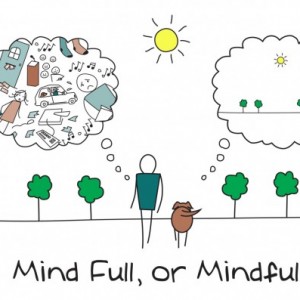The Yoga of Learning a Language ~ Chris Kiran Aarya
 “You live a new life for every new language you speak. If you know only one language, you live only once.” ~ Czech proverb
“You live a new life for every new language you speak. If you know only one language, you live only once.” ~ Czech proverb
I’ve got to admit, I love learning languages.
As an unapologetic extrovert I love to meet and talk to people every day so learning a new language means that I can talk to even more people in different places. I’ve spent years living on and off in Europe, having long wonderful conversations in German and French, watching Greek sitcoms, and laughing at my Italian friends’ jokes.
While I seldom got an A in languages in school, it’s the burning desire to learn and connect that keeps me going.
While we all know the many benefits of yoga, a number of recent studies show that learning a second (or third) language can help you get better grades, stave of Alzeihmers and dementia, and some even say it makes you more attractive to potential mates.
The most recent language I’ve been working on is Greek, a beautiful language that is not exactly easy to learn since there are not many books or computer programs, let alone tutors or teachers available. But since it’s one of a few languages my wife and I want our children to learn from us and its the only way I can talk to some of my cousins, I’m not wasting any time.
Greek is a beautiful language to hear spoken or better yet, sung – much like the sound of a violin. But also much like a violin, it can sound tragic in the hands of a beginner but gorgeous when spoken by someone who really knows it.
To learn another language is, like yoga, a transformative experience. You learn to see and experience the world in a new way, which got me thinking about how many similarities there really are between learning a language and practicing yoga:
Its Humbling.
Learning a new language can be incredibly humbling, especially as an adult, since you are starting from the same place a baby does – from scratch. And nothing is better for putting the ego in its place than voluntarily leaving your graduate school educated mind and years of language skills in your native tongue behind to barely be able to express yourself in a new language. It means to not be heard or understood until after hundreds of hours of practice and study. Not everyone is willing to go through this so they just check out and disengage, or never even try.
Yoga can feel much the same way when one first attends a class and it all seems so new and different. Its not like anything you’ve done before and when you look around at all of the bendy and strong people around you, it can feel very humbling. Heck, 30+ years later it still feels humbling.
When you learn yoga asana, you are learning to use your body and breath in a new way. When you learn a language you are also learning to use your mouth in a new way, you are learning how to listen in new ways. While yoga is an internal practice that requires self-reflection, languages require extroversion. After all, it is about being able to communicate with others, yoga is learning to communicate with the Self
With both language learning and yoga, you must be willing to be a beginner at something, and not just at the beginning since there is so very much to know and understand. So it doesn’t matter if you just finished 4 years of Italian or a 500 hour teacher training, you’re never done learning.
“It doesn’t matter if its yoga, meditation, or learning a language – at first you’ve got to allow yourself to suck at it for awhile.” ~ Aminda Courtwright, Yoga and Language Teacher
Learning a language can be ego crushing – over and over since you are constantly making mistakes and learning from them. But to truly use the language, you must overcome the fear of sounding stupid, of doing it wrong, of not sounding as intelligent as you really are because you can’t yet express yourself at that same level.
We see the same thing in yoga. Sometimes it’s the person afraid of looking inflexible or unbalanced in front of other people so they’ll keep doing their practice at home with a DVD and avoid classes so they won’t feel embarrassed (more on that later). In other cases, its overcoming the fear of a challenging backbend, arm balance, or being alone with yourself in meditation. Learning as an adult is different since the ego has had more time to work on us.
It’s a myth that you can’t learn a language as an adult. Children only have an easier time because of two things; they have more time on their hands and they aren’t afraid to make mistakes.
Yoga and language teacher Aminda Courtwright observes in teaching languages to children; “When they turn 7-8 you can see them start to change and get self conscious. Then at 11-12 they get self conscious for social reasons and are afraid to look foolish and that’s when their learning slows down.”
As adults we forget that we don’t need to be this way. Its because we’re afraid of feeling foolish and embarrassed…which becomes like the I’m too stiff for yoga” excuse.
It Requires Practice.
Just like yoga, it requires persistent practice, and learning a language is a sadhana…a practice.
While there are some language and yoga savants out there who seem to inhale and absorb it all very quickly, most of us require practice – and lots of it. I often laugh when people tell me that I seem to have a natural talent for languages since I never got good grades in languages in school and that any ability I have is through many hours, weeks, and years of effort and practice.
Its not unlike a new yoga student seeing their teacher or another student doing an advanced asana or able to meditate easily and concluding that they are “just naturally calm or flexible.” 98% of the time, what you’re seeing is the result of many years of dedicated practice.
You can’t learn a language without dedicated practice and even then, you need to be patient and keep at it…all while your ego is telling you to quit because its taking a beating every time you pronounce something wrong and are corrected by someone. It reminds me of the hatha yoga student who needs to remain open to the feedback from their teacher since they are seeing things happening with your body that you can’t always sense or see.
It Transforms You.
And it can’t transform you if you don’t surrender to it.
To truly learn a language you must surrender to it, let it drown you, let it flow over you, choke you, exhaust you. The language headache you feel is your brain changing…rewiring to a new way of thinking, expressing, and understanding. Its not unlike the feeling you get as your muscles respond to an asana practice or your brain responds to your first attempts at meditation. The feeling of being transformed can be uncomfortable, humbling, and even scary.
In the process you risk feelings of exhausting alienation and frustration to learn as an adult, especially in a family situation. You can’t just expect everyone to slow down and speak English just for you. So often in our first few yoga classes we feel like we can’t keep up or do many of the things all the strong and bendy people around you are doing. In both instances, you can choose to be either discouraged or inspired and the choice you make will have much to do with how well you progress In a language or your practice.
And just like yoga, you must conform to the practice in order to be transformed, and not just try to conform the practice to you. I’m sure developing my own form of Chris Italian would be fun but I doubt it would help me talk to many people when I’m in Florence.
“If you talk to someone in a language they understand, that goes to their head. If you talk to them in their own language, it goes to their heart.” ~Nelson Mandela
And to let it transform you, you need to embody it. I remember when I was learning more Greek and wanted to propose to my (now) wife and ask her mother for her blessing in the language. But just being able to say the words was not enough, I had to feel them…and she had to know I understood and felt them too. Otherwise, doing so in the language would hold little meaning . Its much like just practicing asana without feeling the energetics of it and trying to embody it – it becomes calisthenics without any real meaning.
You Need A Teacher.
For all of the talk in the yoga world these days about being “your own guru” I think something important is being lost since the meaning of the word has been bastardized to imply a smarmy false teacher with selfish or ill intent. My definition of guru is a teacher or guide that you trust – simple as that. Someone you trust to guide you on your journey of transformation and if that journey is a deeply spiritual one, that guru should be someone who is enlightened. That way they’ve already been along the path you are on and can help you understand what you are seeing and experiencing; and help you to know when you are ready to advance and when you need to spend more time on something.
 Imagine trying to learn a language without a teacher. Sure, you can learn from a computer program, but it will be incomplete and hard to progress. Imagine trying to speak Chinese without the benefit of hearing it, having a teacher hear you, and guiding you to understanding how to make the sounds and develop the ear to hear them, but also to understand and feel what you are saying or reading? Would anyone understand you? Would you understand them?
Imagine trying to learn a language without a teacher. Sure, you can learn from a computer program, but it will be incomplete and hard to progress. Imagine trying to speak Chinese without the benefit of hearing it, having a teacher hear you, and guiding you to understanding how to make the sounds and develop the ear to hear them, but also to understand and feel what you are saying or reading? Would anyone understand you? Would you understand them?
Its also important in hatha yoga since it seems you can learn a lot from DVDs or online videos as you can see and imitate the teacher, but they can’t see you so its only half of a lesson. To complete the teacher-student loop, we need to be able to see you and help you make corrections not only so you won’t get hurt, but so you can feel the energetic benefits of each asana, and progress. And learning pranayama without a teacher to watch, listen and guide you can leave you waking up hours later on the floor after hyperventilating and passing out – and still not having learned much.
And while some may disagree with me, like yoga, we need a teacher or guru to guide us as we learn. Sure, you can learn on your own but you’ll get a lot wrong and waste much energy which could be better spent on your chosen path.
Remember…
These same principles apply not just to yoga and learning a language, but to anything. The process of learning, regardless if its yoga, a language, playing guitar, or knitting, is fundamentally about making your world a little bigger and your mind a little sharper. It is no different than a child learning to walk. It requires effort, and stumbling is inevitable. But we learn from every trip and fall. And regardless of our age, we know that this learning never ends. There is no real mastery, perfection does not exist. But true growth comes through the effort and the ability to make yourself vulnerable to the embarrassment of making mistakes, and to your teachers.
One must tame the ego in order to receive the lessons the teacher is offering. It’s the ego that tells you that you are smarter than the teacher and must know more than they and perhaps more importantly, its your ego that wants you to take their corrections personally.
Its your ego that is telling you to quit, that it’s a waste of your time, and that you’ll never be any good at it.
The ego must be disciplined in order to learn anything and you must have patience. Its your ego after all that feels impatience and unless you learn to tame it, you won’t have the patience to persevere through the stages of learning…which never end.
And lest you think this is some kind of arduous journey, remember that learning is the joy of living. So approach each new step, each mistake, and each triumph with joy because to learn is to live.
So get up, dust yourself off, and get back to it – whether its your yoga practice, a language, your guitar, or that crochet project you’ve kept hidden in a drawer for months! Get busy, get out out there and learn. Get out there and live!



